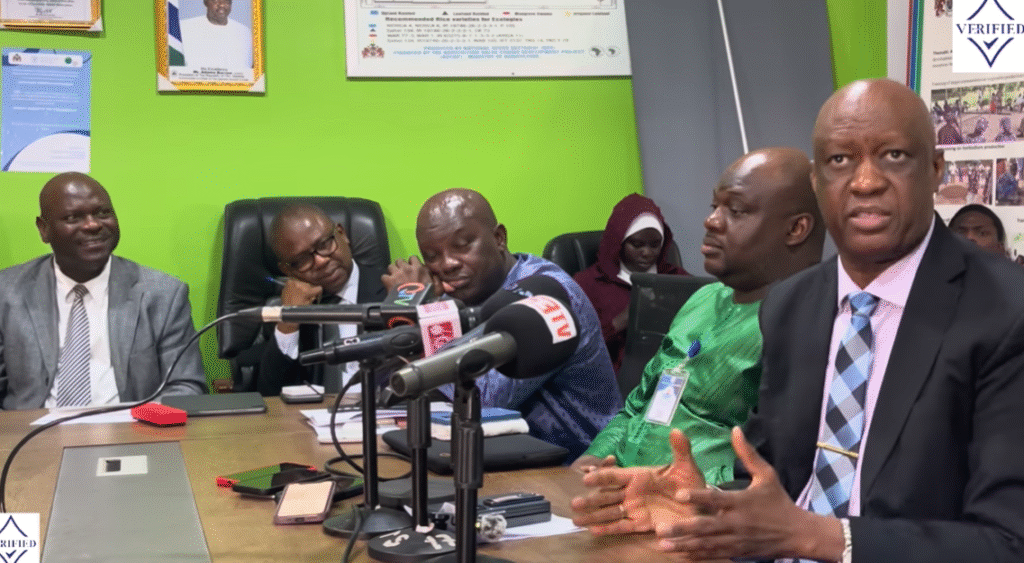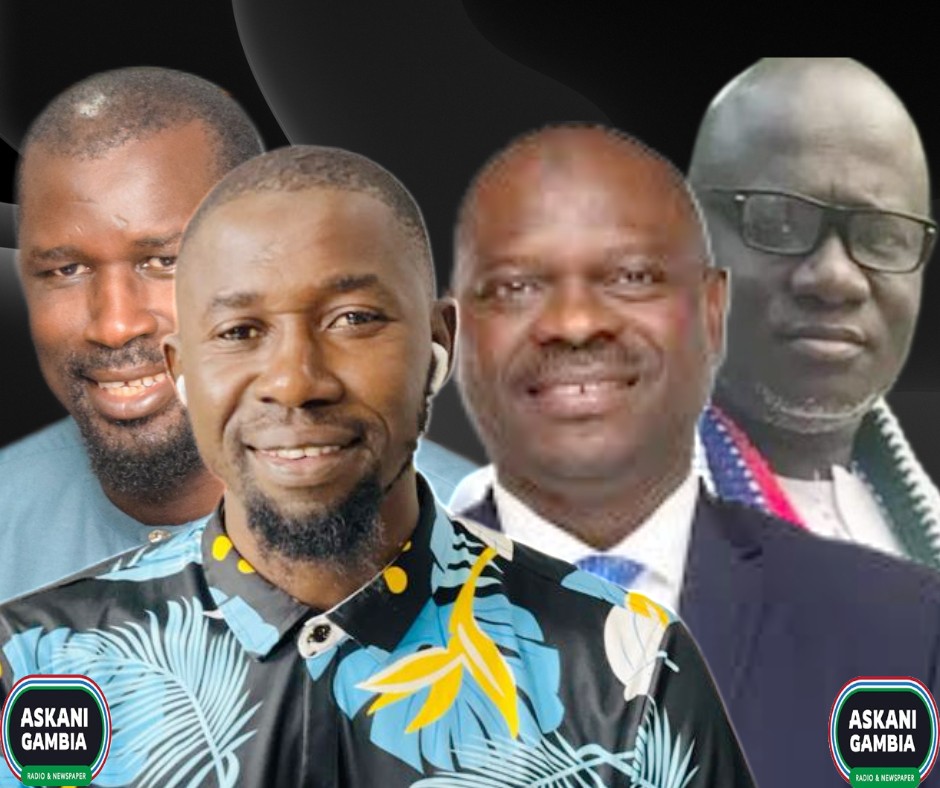
Once again, a government minister has taken to the microphone not to enlighten citizens, but to throw dust in their eyes. In his latest exchange with The Republic’s Mustapha K. Darboe, Finance Minister Seedy Keita chose the familiar path of denial and distortion as he tried to justify the Russian oil scandal and the state-sanctioned favors extended to the President’s nephew.
Keita’s performance was a masterclass in rationalization. He defended the controversial importation of Russian oil, even though state institutions flagged serious irregularities. He argued that the operators were not required to pay tax because they were not domiciled in The Gambia, a bizarre justification that completely misses the point. He casually admitted that “certain regulatory steps were missed” yet provided no details on what those steps were or what his ministry has done to rectify the violation.
Instead, he diverted attention by celebrating the supposed virtue of the Russian traders for accepting payment in dalasi rather than dollars and making the absurd analogy to how international staff may choose to receive part of their salary in foreign currency. But since when do traders have the discretion to be paid in anything other than the legal tender of the Republic?
On the Win Win issue, where the President’s nephew was given a privileged loan facility under the guise of a “pilot project,” Keita again chose rhetoric over reason. He mocked the journalist’s use of private email for official inquiries, even though it is well known that many top government officials including ministers routinely use personal accounts for state business.
The real issue, however, remains the arbitrary and opaque decision to “pilot” rice importation through a company owned by the President’s relative. What policy framework governs such pilots? Who selects beneficiaries, and on what basis? Not long ago, the Central Bank gave millions of dollars to private importers of essential commodities without any talk of piloting. Why the special treatment now?
Worse still, the Minister defended the decision to grant a loan to a businessman with a known history of bank defaults. Any responsible financial institution would have treated such a person as a high-risk client, but Keita insists there was “no credit risk” involved even though the individual was part of the very company receiving the state facility.
The Republic’s investigation laid bare the troubling profile of Alhagie Kebbeh and the rules that were blatantly violated. The fact that the President’s nephew, an obscure figure just five years ago, has suddenly become a multimillionaire through state patronage tells the real story of corruption in today’s Gambia.
When officials run out of arguments, they resort to arrogance and personal attacks. Keita, too, fell back on self-righteous platitudes: “I took an oath to serve my country,” and “I’m not here to take breadcrumbs.” Then came the condescension: “Know people before writing about them,” and “Understand taxation before asking questions.” Yet, this same minister presides over a ministry repeatedly indicted by audit reports and parliamentary reviews for mismanagement, unlawful disbursements, misreporting of accounts, and disregard for financial laws.

Let it be clear: every senior public official in The Gambia takes an oath of office. But no oath has ever stopped corruption. The evidence is everywhere – from the National Audit Office reports to the 2025 Gambia Corruption Index published by Gambia Participates. If Seedy Keita truly believes there is no corruption in government, he should commission an independent inquiry into public institutions and prove it.
The reality, however, is undeniable. Like the President and his fellow ministers, Seedy Keita has mastered the art of rationalization and false equivalence: denying facts, twisting logic, and deflecting blame to cover up corruption. Meanwhile, citizens are left with broken roads, ill-equipped hospitals, poorly resourced schools, poor water, electricity and ferry services and excruciating poverty.
Corruption in The Gambia today is as visible as the sun at noon. And every time an official denies it, they don’t erase the truth, they only expose themselves further as defenders of a rotten system.
For The Gambia, Our Homeland


